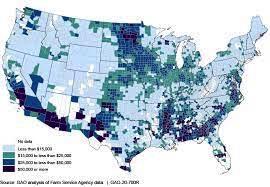 A study conducted by agricultural economists at the University of Illinois covering both the 2018-2019 and the 2019-2020 seasons demonstrated that Market Facilitation Program (MFP) funding affected decision making in favor of storage on-farm. The effect was small with retention of soybeans approximately six percent higher than they would have been in the absence of MFP payments.
A study conducted by agricultural economists at the University of Illinois covering both the 2018-2019 and the 2019-2020 seasons demonstrated that Market Facilitation Program (MFP) funding affected decision making in favor of storage on-farm. The effect was small with retention of soybeans approximately six percent higher than they would have been in the absence of MFP payments.
 The authors attributed the decision by farmers to hold beans as a move to optimize return. Considerations contributing to the sell–or-store decision included availability of working capital from MFP payments, physical storage costs, logistics and the opportunity cost of deferring revenue. During the period evaluated, prices for soybeans were low due to trade conflicts with China. Overall, soybean stocks were higher by 226 million bushels or six percent compared to a theoretical situation without ad hoc government payments.
The authors attributed the decision by farmers to hold beans as a move to optimize return. Considerations contributing to the sell–or-store decision included availability of working capital from MFP payments, physical storage costs, logistics and the opportunity cost of deferring revenue. During the period evaluated, prices for soybeans were low due to trade conflicts with China. Overall, soybean stocks were higher by 226 million bushels or six percent compared to a theoretical situation without ad hoc government payments.